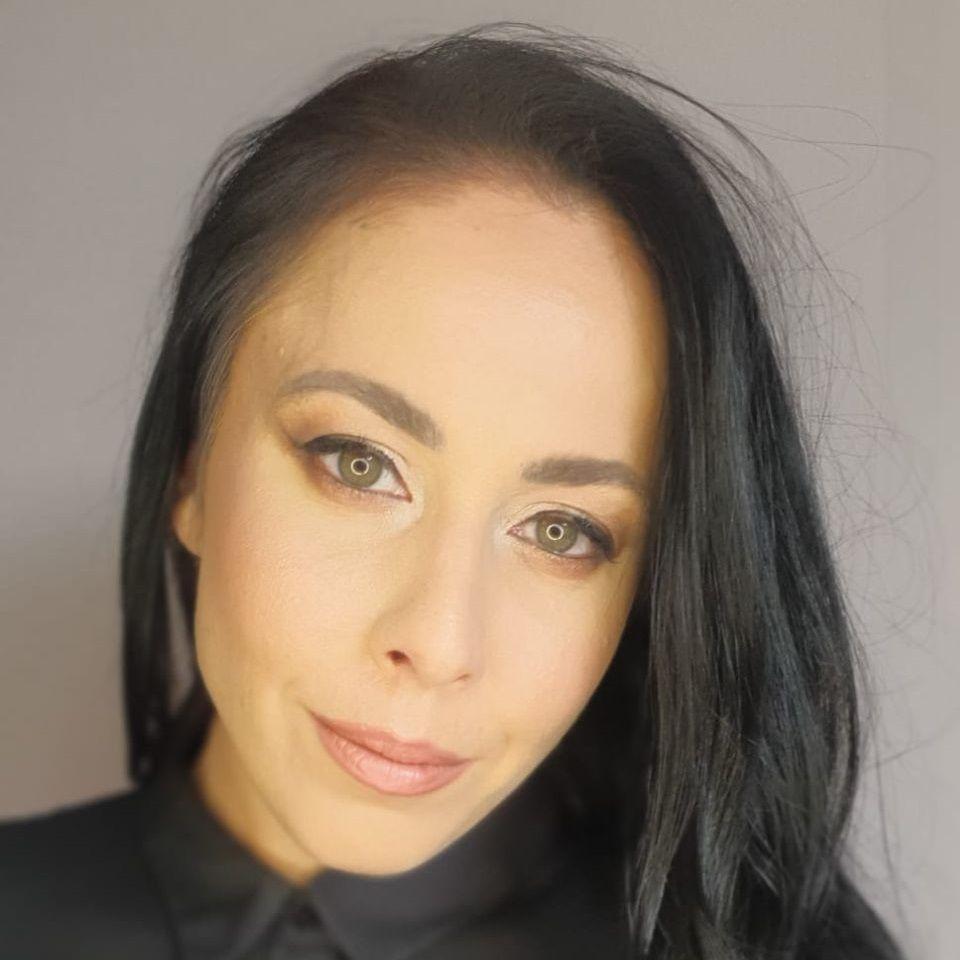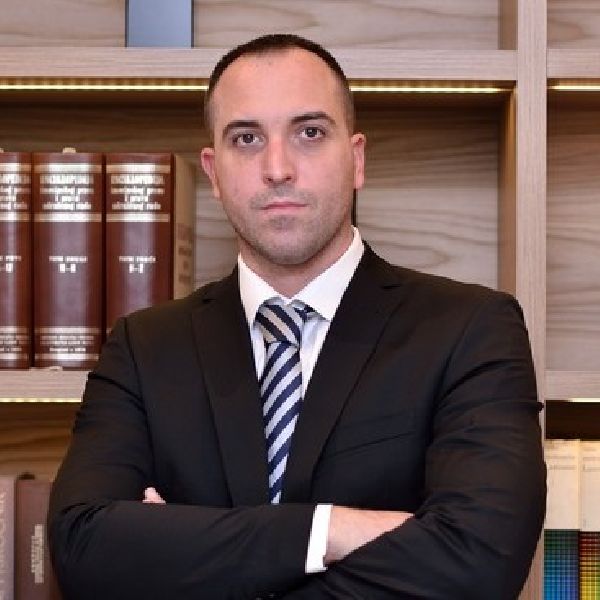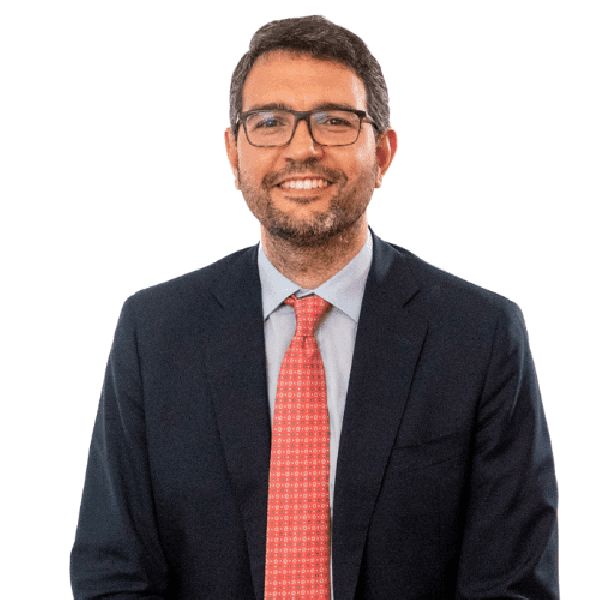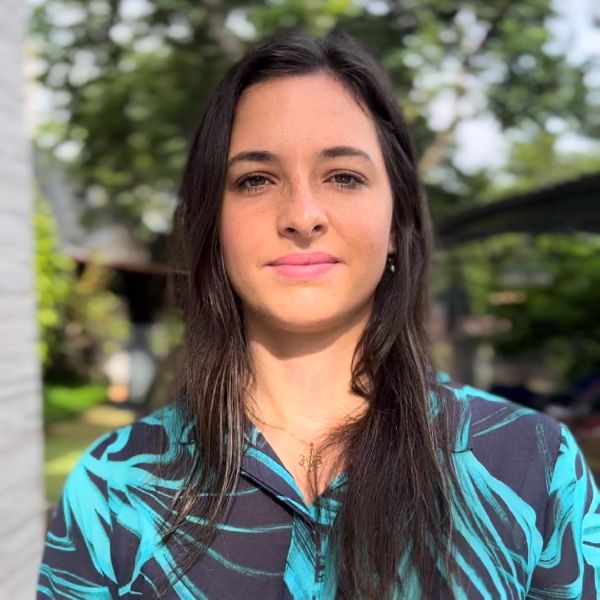.jpg)
|
24.05.2023 | Teodor BURNAR
|




|
Transitioning from Criminal Law to Corporate and Tech Law. Ms. Lucija Vranesevic Grbic (WOLEP member, Serbia): „When dealing with legal matters related to technology, it is imperative to gain a practical understanding of the technology involved, in addition to comprehending the regulatory landscape”
WOLEP: Please introduce yourself to the WOLEP community. Our members would greatly appreciate the opportunity to get to know you better.
Lucija Vranesevic Grbic: As a fully licensed attorney in the Republic of Serbia, I have recently ventured into private practice by opening my own law office in 2021. While I mainly focus on tech and corporate law, I also have prior experience in criminal law, which is a topic we shall explore further in this talk.
Notably, my legal journey has taken me through various academic institutions and regions. I have successfully completed my law degree at the Faculty of Law in Croatia, post-graduate studies in Serbia, passed the bar exam in Serbia, and currently hold a valid license to practice law in the same jurisdiction.
As I continue to navigate the ever-evolving legal landscape in Serbia, I hope to utilize my diverse qualifications and experiences to provide insightful legal commentary and useful legal services to both individuals and entities.
WOLEP: Allow me to extend my congratulations to you for embarking on this admirable career path. What were some of the challenges you encountered when switching countries and adapting to a new legal environment?
Lucija Vranesevic Grbic: I have to say that switching countries and adapting to a new legal environment was not as difficult as one might think. The legal framework in Serbia is largely similar to that in Croatia, with some differences due to Croatia's membership in the European Union. Additionally, I hold dual citizenship, which helped mitigate any language barriers that might have arisen. Given that the two countries share a common language, I found it relatively easy to communicate with clients and colleagues using legal terminology that is quite similar. Overall, I would say that changing countries was not a challenging experience for me.
WOLEP: Could you discuss some of the most significant challenges or hurdles you experienced when transitioning from criminal law to corporate and tech law? We would be interested to learn about any obstacles you encountered when making this shift to these distinct areas of the legal profession.
Lucija Vranesevic Grbic: From a practical standpoint, transitioning from a criminal law practice to specializing in corporate and tech law proved to be a significant undertaking. Although I obtained an LLM degree and first gained legal experience in criminal law, I found myself at a crossroads during the COVID pandemic. The legal practice had slowed down to a crawl, and I had to reevaluate my priorities and career prospects.
During this period, I came across a Harvard course called "Computer Science for Lawyers" and decided to give it a try. As I completed the course, I became increasingly convinced that legal tech and related areas held great promise for my career path.
As I began to explore corporate law, I was surprised to find that I had a newfound passion for this often-overlooked area of legal practice. By taking on relatively simple cases and learning as I went, I gradually gained experience and knowledge in corporate law. It's interesting that during my faculty days I was never interested in commercial or corporate law!
Despite my enthusiasm, I encountered some significant obstacles when it came to upscaling from basic services to more complex legal issues. Since I did not have practical experience in tech and corporate law, I had to spend considerable time learning the theoretical aspects and figuring out how to apply them in practice. In other words, I had to put significant effort into translating the theoretical knowledge into practical skills.
In retrospect, this transition was undoubtedly a challenge, but it has also provided me with a host of rewarding opportunities and fruitful experiences.
Since I did not have practical experience in tech and corporate law, I had to spend considerable time learning the theoretical aspects and figuring out how to apply them in practice
WOLEP: Congratulations on your successful transition to corporate and tech law! It sounds as though your pivot required courage and dedication, given that you were already accustomed to the inner workings of the legal profession. Do you see this new career path as a long-term commitment, or are you considering other options in the near future?
Lucija Vranesevic Grbic: Since acquiring a number of long-term clients with corporate and tech-related needs, my current focus is in these areas of law, and I intend to continue practicing in this field for the foreseeable future. However, I also have experience in criminal law, and I still perform work in this area when necessary.
Although inquiries outside of my main expertise occasionally arise, I have developed positive professional relationships with several colleagues in the Serbian legal community. In situations where I am less familiar with a legal discipline - for instance, family or property law - I can rely on my circle of trusted experts to address these inquiries effectively.
Overall, I find that collaboration with my colleagues enhances the quality of client service that I can provide, which is why I am deeply committed to working together with other legal professionals. My association with the WOLEP network, in particular, brings me great satisfaction and pride.
WOLEP: What is your perspective on the intersection between tech law and criminal law, particularly in cases of cybercrime? Have you gained any insights on this issue through your own experience?
Lucija Vranesevic Grbic: I actually had an overlapping case some time ago that was resolved successfully with the assistance of a colleague who is a good friend of mine. In this instance, I recognized that the problem required expertise in both tech law and administrative law, and so I delegated that colleague to handle the latter aspect. By leveraging the unique skills of my colleague and working collaboratively, we were able to satisfy the client's needs and deliver a better overall outcome. I always inform my clients when I collaborate with colleagues because I believe that this approach leads to more effective legal work.
I recognized that the problem required expertise in both tech law and administrative law, and so I delegated that colleague to handle the latter aspect. By leveraging the unique skills of my colleague and working collaboratively, we were able to satisfy the client's needs
WOLEP: In my view, this exemplifies the very essence of professional collaboration - a core value of the WOLEP network. This mindset has become particularly crucial in today's environment, where concerns and challenges regarding emerging technologies - such as Artificial Intelligence - have arisen.
Lucija Vranesevic Grbic: As a matter of fact, the invitation to join WOLEP has come at an opportune time. While I can't provide too many details, I am currently handling a case that involves certain jurisdictional challenges and intricate issues of private international law. Our first option is to resolve the dispute within Serbia; however, in the event that this strategy is unsuccessful, I am pleased to have access to the WOLEP network's resources to connect with colleagues in other countries. By engaging further collaboration across borders, I can not only help my client but also draw on the collective expertise of fellow legal professionals who are part of this network.
WOLEP: We eagerly anticipate pursuing this potential collaboration. Returning to our main topic, what steps did you take to develop the competencies necessary to practice law in a new field, and what guidance would you offer to other professionals looking to make a comparable transition?
Lucija Vranesevic Grbic: As a junior attorney, a more seasoned colleague once shared with me an invaluable piece of wisdom that I would like to pass down. Their advice was simple yet effective - whenever I encountered an insurmountable legal hurdle, I should put aside my anxieties and sift through legal texts, including laws, statutes, and regulations, to pinpoint a plausible resolution.
Through this sage counsel, I discovered that when I hit a wall, it is essential to remain collected and revert to the basics, which entails bolstering my theoretical knowledge and turning to more experienced peers for guidance. Thus for those experiencing a similar transition, my recommendation is to regard theoretical knowledge as a first critical step and to utilize available resources such as trusted colleagues to expedite specialized learning.
For those experiencing a similar transition, my recommendation is to regard theoretical knowledge as a first critical step and to utilize available resources such as trusted colleagues
WOLEP: Considering the dynamic nature of this field, how do you manage to keep yourself abreast of the latest emerging developments?
Lucija Vranesevic Grbic: In this rapidly-evolving field that we operate in, it is essential to stay up-to-date with the emerging developments. Personally, I keep myself updated by reading current news, scouring the internet, monitoring LinkedIn and joining relevant groups, and following reputable websites. Every day, I take some time to read through the latest news and seek out fresh information that I haven't encountered before.
Furthermore, when dealing with legal matters related to technology, it is imperative to gain a practical understanding of the technology involved, in addition to merely comprehending the regulatory landscape. Being legal practitioners and not engineers, we must obtain a pertinent technical knowledge to carry out our legal work efficiently. To that end, I utilize my blogging skills and research the details surrounding each technology involved carefully, and then write about it.
To be candid, my husband is employed in the IT industry, and while I can depend on his expertise occasionally, I prefer to research and evaluate information independently, so as not to become overly reliant on a single source of information.
WOLEP: How do you approach the topics that you write about on your blog? Are they inspired by your particular professional focus at that moment or are they subjects you are looking into at some point?
Lucija Vranesevic Grbic: Well, it's a bit of both. On some occasions, I work on a type of contract or legal document and find it inspiring enough to write about. For instance, I wrote about technology transfer agreements, franchise agreements and similar legal areas that piqued my interest. At other times, I read news articles or updates online, and that inspires me to write about new topics. For example, topics like the non-competes and the US Federal Trade Commission, which were trending subjects when I wrote about them. And then there are times when new ideas just pop into my mind spontaneously. It's difficult to describe where these ideas come from, but they are like improvisations that feel like a good topic to write about. I'll research it, and once I have a good understanding of the topic, I will write about it at once. Therefore, it all depends on the situation. I don't always plan too much ahead. Instead, I let the inspiration flow naturally.
WOLEP: In the past two decades, Balkan countries have seen significant growth in the tech industry, attracting important tech companies to establish their headquarters in the region. What is the current state of Belgrade's tech industry, and has it become a sought-after city for tech companies?
Lucija Vranesevic Grbic: Certainly, Belgrade's tech industry is on a positive trajectory and attracting the attention of local and foreign investors. Many companies have already incorporated their legal seats in Belgrade, and the growth trend is encouraging. A multitude of foreign clients have shown a keen interest in the Serbian market and have set up companies within the region – including some of my clients. It is heartening to see an influx of foreigners bringing their expertise to Serbia, further driving the expansion of the tech industry. Croatia appears to be experiencing similar progress as well.
WOLEP: Regarding the technologies you cover, are there any specific areas of interest or innovative technologies that you find noteworthy from a legal perspective? For example, do you find AI particularly intriguing, or are there other areas that catch your attention?
Lucija Vranesevic Grbic: There are a few technologies that I'm fascinated with. Sure, AI is the most spoken of nowadays and it's like the elephant in the room. I will address it a bit later. I would like to point out other technologies as well. From 5G networks and breakthroughs in the biotech field, to electric vehicles powered by sodium ion batteries, new innovations are emerging constantly.
The rollout of 5G networks and the expansion of the Internet of Things promise to connect everything - from smart fridges to entire cities. This could enable life-changing applications in healthcare, like surgeons operating across continents to treat patients in remote areas.
Electric vehicles are gaining momentum as companies race to develop better batteries. Lithium ion batteries currently dominate the market, but alternatives like sodium ion batteries may prove easier to source. These developments are critical to reducing carbon emissions and achieving sustainability goals.
Web3 brought some new cybercrimes such as exploiting vulnerabilities of smart contracts, cryptojacking, ice phishing, and so on. And now is the time to see how the law will react
The blockchain industry and emergence of Web3 are also generating buzz. Decentralized finance promises to disrupt traditional finance, though the sector remains largely unregulated. Web3 brings new cybersecurity risks like cryptojacking and smart contract vulnerabilities that regulators are scrambling to address.
Artificial intelligence remains a hot topic, and how AI and blockchain technologies converge will be interesting to observe. AI algorithms require data, and blockchain offers the transparency, immutability and decentralization that could unlock new uses for data.
Like I said, technological change also poses challenges for the legal system, which has historically struggled to keep pace. As innovations like AI, autonomous vehicles and cryptocurrencies become mainstream, lawmakers will need to adapt quickly to ensure appropriate oversight and governance. For example, we are now witnessing how decentralized finance is going to shape the traditional finance, yet the field is not really regulated, even though just recently the Markets in Crypto-Assets regulation was adopted and was trending. But the problem with Web3 is also that it brought some new cybercrimes. I always like to mention the criminal law perspective as well. For example, there are new cybercrimes such as exploiting vulnerabilities of smart contracts, cryptojacking, ice phishing, and so on. And now is the time to see how the law will react.
Overall, these emerging technologies are fascinating to me from multiple perspectives - both their potential to transform our lives for the better, and the societal and legal challenges that must be navigated along the way.
WOLEP: How does your work helping clients set up and ensure compliance for companies in Serbia extend to foreign clients establishing operations there?
Lucija Vranesevic Grbic: I have clients from abroad who have already set up companies in Serbia, but also clients who share a similar interest. At present, they are primarily interested in learning more about Serbia's legal and regulatory environment for businesses.
As I mentioned previously, I'm pleased to see Serbia becoming a fertile ground for investors and those looking to establish companies. This enhances Serbia's economic development and makes it an attractive destination. My work involves providing consultancy services that inform clients about adhering to corporate legal requirements, drafting compliance documents, contracts, and so on - many different activities.
In the past, when I received requests to recommend a lawyer in another country, I was unable to do so as I lacked an international network of colleagues. I'm delighted to now be a part of the WOLEP network where I can recommend fellow members, which is a tremendous benefit
I would like to highlight that corporate compliance involves intersections between multiple domains. When drafting compliance documents, they relate to labor law, environmental regulations, and tax codes. In some of these domains, I work with colleagues who have more expertise in other practice areas like taxation. Compliance requires an interdisciplinary approach due to the overlapping nature of legal obligations in different areas that businesses must navigate.
WOLEP: You've mentioned that WOLEP membership came at the right moment for you. What benefits do you see in this affiliation and how do you think you can develop this relationship in the future?
Lucija Vranesevic Grbic: Professional cooperation is of utmost importance to me. In the past, when I received requests to recommend a lawyer in another country, I was unable to do so as I lacked an international network of colleagues. I'm delighted to now be a part of the WOLEP network where I can recommend fellow members, which is a tremendous benefit. I also see that you regularly organize webinars, roundtables and other events that are valuable for my professional development. I would like to participate at times as I gain a lot from such interactions. Overall, I am thrilled to be a member of your international network of attorneys which I'm sure will be highly advantageous for my legal practice.
Are you a legal eagle with a passion for collaboration? Join forces with other legal professionals and elevate your practice to the next level. Don't wait, sign up now to WOLEP and connect with like-minded lawyers today. Register your account here.
#WOLEP Talk #Lucija Vranesevic Grbic #Serbia #Tech Law #Artificial Intelligence #law in the Balkans




